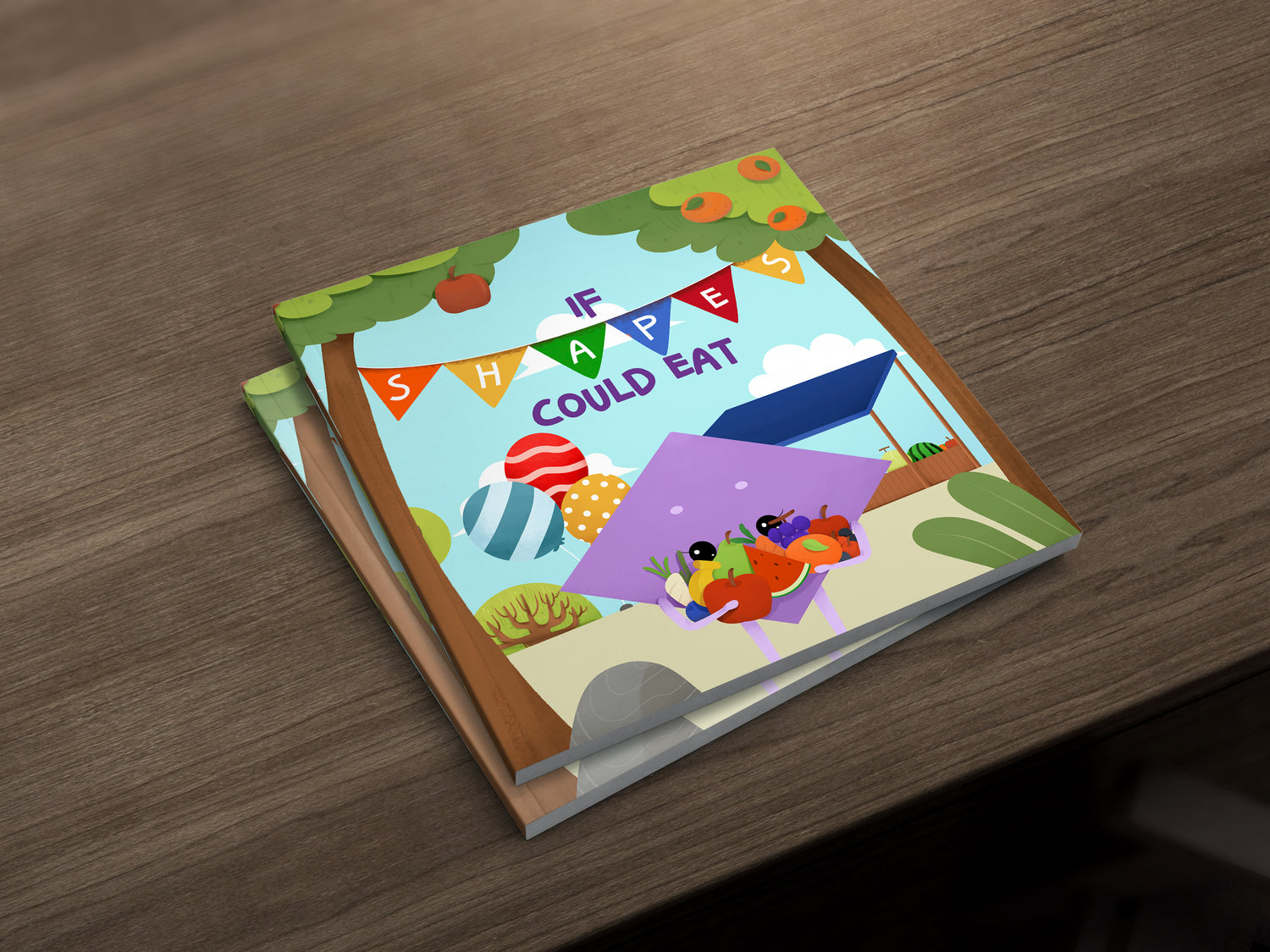Children with a strong sense of self-belief are the best when dealing with life's challenges and obstacles when they finally grow up.
Why? Because building self-belief in them at a young age helps them a whole lot and equips them for life.
And no, building a strong sense of self-belief in kids shouldn't be a pain because just creating the environment for them, celebrating their little wins, and promoting their decision-making abilities can go a long way in helping them build this.
In this blog post, we will look at how you can build self-belief in your kids at a very young age so that when they grow up, they tackle life head-on.
But first, why should you even build a strong self-belief in your little ones?
Why Confidence Matters for Kids
Can you remember those little triumphs, such as your child's joyful declaration of becoming the Lego champion or their acquisition of shoe-tying skills?
More than merely adorable moments, they are the building blocks for a child to grow up believing, "I can handle things."
Here are some of the reasons why it's a big deal;
Feeling Confident in Themselves
Your child gains a confidence toolkit when they think they can handle little obstacles. This bolsters their confidence and readiness for whatever challenge they face.
Being Self-Assured
Children with self-belief tend to stay positive through challenging times. They are as resolute and unlikely to give up as if they had some superpower.
Doing Things on Their Own
Children who have self-belief develop more independence. One of the most important aspects of growing up is when they begin to make choices and solve problems independently.
Thinking Positively
Children who have a positive outlook are helped by early self-belief. They approach everything with optimism and a can-do attitude because it's as if they have a mentality that says, "I can do this."
Getting Ready for Major Challenges
By increasing their self-belief at a young age, we are preparing them to solve the riddles of life bravely.
How to build a self-belief in little ones
Now we know building self-belief in children is not an option; it is a must; how do you do that?
Here are practical ways to do it;
1. Encourage Exploration and Curiosity
The first way of building a strong sense of self-belief for your little ones is by encouraging their exploration and curiosity.
And hell no, we're not attempting to raise a superhero baby, even though it would be beautiful.
More of the focus is on developing in them a mindset that says, "I might not know it now, but I can figure it out."
Teach your child to see challenges as opportunities rather than obstacles when they come along.
We want kids to think, "I can't do this yet," rather than, "I can't do this." It's similar to planting a little curiosity seed that grows into a large self-believing tree.
Appreciate their effort rather than merely the outcome, whether they are learning a new skill or tying their shoes.
2. Cheer for Every Success
Yes, It's time to talk about supporting your little champion; we're not talking about gold medals from the Olympics (though who knows?), but rather those little yet meaningful daily successes.
Be bold and applaud your child when they succeed, like stacking blocks efficiently or tying a shoelace.
It's also like congratulating them on a job well done. Recall that the "you did it!" mentality is what we're all about; perfection is not our goal.
Therefore, the next time your child shows a new ability or even merely completes a task, do a joyful dance or sprinkle some flowers if you're feeling very happy.
Gradually, you're sending positive energy into their confidence jar by acknowledging these little victories.
3. Cultivating a Supportive Environment
Another effective way of building self-belief in kids is creating a supportive environment.
And no, It's not about making your house into a motivational lecture (though that could be fun). It's more about being the support system your child needs.
When they're stuck, provide a helping hand and give them plenty of encouragement. Think of your remarks as sunlight, boosting their sense of self-worth.
Remind them that failures are only interruptions on the path rather than obstacles. They'll feel like they can take on anything in this encouraging environment because they know you've got their back.
4. Teaching Resilience and Coping Skills
Being resilient is a valuable skill to teach your child since life can be quite a roller coaster.
Be their resilience coach when they encounter obstacles or setbacks. Tell them about your setbacks to reassure them that everyone has difficulties.
Promote problem-solving skills to help them see barriers as challenges to be overcome rather than impenetrable walls.
Highlight the importance of getting back up while reassuring them that feeling a little down is OK.
5. Promoting Independence and Decision-Making
You can also build self-belief in kids by encouraging self-reliance. It may be as easy as letting them choose their outfit or food. Giving kids discretion over minor choices implies, "Hey, your voice matters."
Although they might make some unusual fashion choices along the road, the main goal is to help them become more confident in their decision-making ability.
6. Leading by Example
In most cases, children absorb everything around them, including their energy, as sponges do.
Give them an example of how to take on problems head-on. When facing challenging circumstances, show them you can overcome problems with a can-do attitude.
Whether attempting a new dish or repairing a leaking faucet, your confidence is an example for others.
Remember that you are shaping young superheroes who believe in their abilities, not merely parenting children.
7. Always Encouraging Positive Self-Talk
Imagine your child being the star player in a little stadium that is their brain. Cheers, not jeers, should fill those stands.
Instruct them to be their greatest admirer. Encourage constructive self-talk in them when they encounter difficulties.
As an alternative to "I can't do this," change the script to "I'll give it my best shot." It's as if you've formed a mental cheer squad that will support them through difficult times.
8. Everybody's Special: Celebrating Uniqueness
Next on our list is finding ways to tell your children that everyone has unique abilities, much like a superhero.
We're talking about the wonderful things that make them, well, them, not about masks and capes.
Always encourage them as much as you can to see the unique qualities in others as well. Everyone has a float in this massive parade of awesomeness, not a competition.
9. Play and Creativity Together
Interestingly, imagination and laughter can make one feel more confident. It is all about having fun while developing that strong sense of self-belief; we are not talking about serious business here.
Playtime is the equivalent of a superhero training camp. Every play session allows your child to use their imagination, whether building enormous Lego skyscrapers or constructing grandiose pretend adventures.
Through play, kids understand that it's OK to try new things, take chances, and, most importantly, have fun.
Give the art tools a go and inspire creativity. It's OK to finger paint, doodle, or even use cardboard boxes to create a masterpiece.
Effects of little ones not building sef-belief
There are some not-so-good consequences of not building self-belief in your little ones.
Here are some of these effects;
Children might fear attempting new activities without a strong sense of self-belief. It is possible for the dread of failing to seep in and transform promising prospects into overwhelming obstacles.
You know the saying, "When the chips are down, the tough get going?" If they haven't developed that resiliency muscle, not so much. The capacity to recover from setbacks could be impaired.
Children who lack a strong sense of self-belief might start evaluating themselves against others. This may cause them to feel insufficient and to fail to recognize their special abilities.
Making decisions with confidence often results from having faith in one's skills. With it, children might find it easier to make decisions of any size because they worry they won't choose the right one.
Developing connections is an essential aspect of maturing. Children who lack self-belief may find it difficult to interact with others, which might impede the formation of close connections.
Quick One: For more insights on how to relate with your kids, growing up, bonding, or books for your children, Buy My Books or browse through my Collections.
Frequently Asked Questions (FAQs)
In this section, we'll take a good look at some of the frequently asked questions regarding building a strong sense of self-belief in kids;
Let's go
Why is early self-belief important for kids?
Early self-belief forms the basis for a child's confidence and resilience, shaping their positive attitude towards challenges.
How can parents promote positive self-talk in children?
Encouraging a growth mindset involves teaching kids to replace negative thoughts with optimistic ones, fostering a belief in continuous improvement.
What's the role of play and creativity in building self-belief?
Play and creativity create a safe space for kids to take risks, try new things, and learn from mistakes, contributing to developing a healthy sense of self-belief.
How do children develop a strong sense of self?
A strong sense of self develops through positive reinforcement, supportive environments, and opportunities for exploration and decision-making, building confidence and self-awareness.
How do children form beliefs?
Children form beliefs through experiences, interactions, and the influence of their surroundings. Parental guidance, encouragement, and modeling also significantly shape their beliefs.
Final Thoughts
So, dear parents, here's the scoop: building your little one's belief in themselves is like planting seeds for a confident future.
And just as we've discussed above, simple but effective gestures like celebrating those small victories, encouraging them to try new things, and being their biggest cheerleader.
With a strong sense of self-belief as their sidekick, they'll tackle life's challenges with a smile.
Lastly, remember that you're not just helping them tie their shoes or stack blocks but shaping resilient, independent, and positive individuals.


